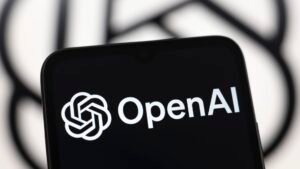ChatGPT Creator’s Product Chief Kevin Weil Claims AI Will Surpass Human Performance This Year

AI’s Future in Competitive Programming
Kevin Weil’s Bold Prediction
Kevin Weil, the Chief Product Officer at OpenAI, has made an intriguing forecast. He predicts that by the end of 2025, artificial intelligence (AI) will outperform human programmers in competitive programming. In a recent appearance on the YouTube show Overpowered, hosted by Varun Mayya and Tanmay Bhat, Weil discussed the rapid advancements in AI that could change the landscape of software development.
Accelerated Advancements in AI
Weil challenged previous estimations regarding the timeline for AI capabilities in coding. For instance, Anthropic had suggested that automation in coding wouldn’t be realized until 2027, but Weil strongly disagreed. He stated, “At the rate we’re going, I would be surprised if it’s 2027. I think it’s going to be sooner.” This sentiment reflects the fast pace of development in AI technologies.
Historical Context of AI Evolution
Weil pointed out that earlier versions of OpenAI’s models, like GPT-01, already ranked among the top 2 to 3 percent of competitive programmers worldwide. With the anticipated release of the GPT-03 model, Weil expects it to achieve a ranking as high as the 175th best coder globally. Future models are likely to perform even better, marking a significant milestone in the evolution of AI in coding.
Significance of 2025
Weil believes that the year 2025 will signify a key turning point in AI’s abilities. He compared it to previous milestones in technology, such as computers outperforming humans in multiplication and AI beating humans at chess. “This is the year that AI gets better than humans at programming forever… and there’s no going back,” he declared. This shift could have wide-ranging implications for how we understand and engage with programming.
Democratizing Software Development
One of the remarkable outcomes of this technological evolution could be the democratization of programming. Weil envisions a future where everyone, regardless of their technical skill level, can create software easily. He stated, “Imagine all the things you can do if you don’t need to be an engineer to create software.” This notion introduces the idea that software development could become more accessible to the broader public.
The Human Element in Programming
Despite the increasing role of AI in coding tasks, Weil emphasized that human skills will still be invaluable. High-level problem-solving and decision-making will remain crucial areas where human expertise is needed. “Understanding what problems to solve, where to focus your work, where the leverage is—those kinds of things are still going to matter,” he explained. This suggests that while AI may take on more responsibilities, the guidance of human coders will still be essential in navigating complex challenges.
Future Implications of AI in Programming
As the landscape of software development shifts, organizations and individuals will need to adapt. The interplay between AI and human coders will be critical in ensuring that the coding process becomes both efficient and innovative. Businesses may find themselves rethinking their hiring models and training programs to incorporate more design and oversight roles, rather than solely coding positions.
Conclusion
The predictions surrounding AI’s future in competitive coding raise essential considerations about the nature of work in technology. As AI systems become increasingly capable, understanding how to leverage these systems while still valuing human input will be key. The integration of AI into coding not only represents a technical evolution but also invites us to rethink our approach to programming in a rapidly changing technological landscape.





